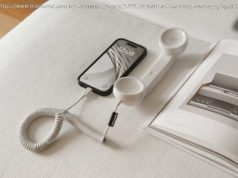The iPhone has finally been upstaged by the Apple Watch.
It’s taken a while, but finally it looks like the iPhone has met its match. While the new iPhones got the big launch treatment last week, it was another Apple product that many found more interesting: the updated Apple Watch Series 4.
iPhone fatigue is an inevitable factor here: Apple’s smartphone has been around for a long time now and there’s only so much excitement that even the most dedicated enthusiast can generate for a screen that is…a bit larger.
Perhaps that’s why much of the coverage of Apple’s 12 September event focused less on the technology in the new iPhones, and more on the price you’ll have to pay for them. Here, Apple continues to exploit the fact that, although there are plenty of much cheaper yet perfectly capable smartphones available, iPhone fans are still willing to pay handsomely for the company’s handsets.
But the reality is that, at least for now, the smartphone is no longer a hotbed of innovation — something that has been the case for a couple of years or more. You get the feeling that even the iPhone’s more interesting features, like augmented reality, are probably just warming up consumers for some future Apple smart glasses.
Instead, the Apple Watch is where the action is. And just as it took until the iPhone 4 for Apple’s smartphone ecosystem to come into focus (for me at least), so it turns out the same is true of its smartwatch.
The Apple Watch Series 4 looks better and is more useful that previous versions. Most interesting is its ability to take an electrocardiogram (ECG) and spot if the wearer has suffered a fall.
As Larry Dignan points out, that makes it a fashionable medical device, opening up all manner of opportunities around healthcare and the broader wellness market. You only have to read the incredible story from my ZDNet colleague Jason Perlow to realise the vast potential of these technologies.
And Apple seems to have worked out the actual point of the Apple Watch, and why you should wear one.
There’s a lot of concern about how our always-on culture is harming our health and our relationships, and in this respect the Apple Watch is the anti-iPhone: its screen is too small to look at all the time, but big enough to alert you to things that actually matter. And that emphasis on fitness — and now specifically on health — means it’s a device connected to our physical lives, not our digital ones.
In an interview with The Washington Post, Apple’s chief design officer Jony Ive described the Apple Watch as ‘unambiguously the most personal product we make’ and went on to sketch out how that might evolve: “The clues for the future are when you can have a high degree of confidence that you personally are connected to the net — not your phone, you,” he said.
This idea of being constantly connected but not always distracted has plenty of potential in areas like identity and payments — assuming users don’t find such an intimate connection too intrusive (Apple’s strong stance on privacy will likely help it here, too).
This doesn’t meant that the Apple Watch, even in its fourth iteration, is a perfect device. A watch that can’t make it through 24 hours without needing a recharge is a pretty odd proposition, while the design isn’t going to please or attract everyone. The attendant ecosystem of apps and services is still immature, too — few healthcare providers are ready to deal with all this data these devices can generate, for example.
Even if the Apple Watch takes off, that’s hardly going to hurt the iPhone, because the watch and the phone are part of the same package. If the Apple Watch tempts in consumers who have never bought an iPhone before, that’s good news for Apple’s coffers. And if improvements to the watch make iPhone owners less likely to try out rival offerings when it comes to upgrading, that will keep Cupertino happy too.
But the time is right for the Apple Watch to make a breakthrough. The next year or so isn’t likely to be crammed with smartphone innovations — at least until foldable phones arrive, at which point new possibilities will present themselves. In the meantime, I expect to see Apple making a lot more noise about its smartwatch over the next year or two.
Previously on Monday Morning Opener:






